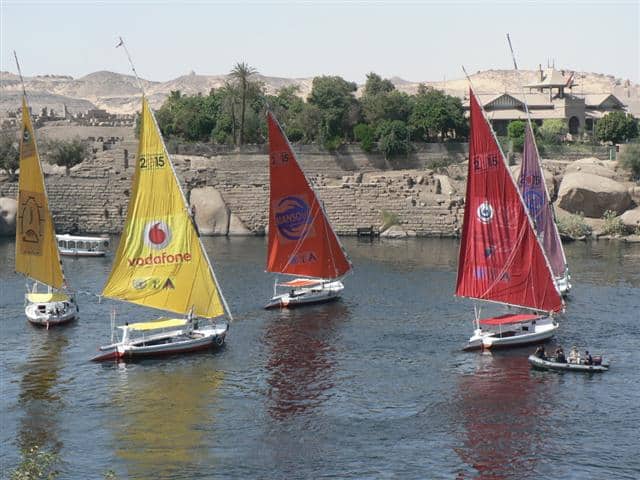Sailing the Nile Initiative
Despite considerable achievements in terms of human development, Egypt still ranked 112th in the Human Development Index for 2007 (one lower than in 2006). According to the 2007/2008 Human Development Report, 14 million Egyptians still live under the poverty line and nearly 4 million people rely on handouts for their daily food.Regional disparities and the existence of growing pockets of urban poverty constitute two of the key obstacles to the development of the country. More specifically, Upper Egypt is currently home to 35.2% of the country’s poor and to approximately two thirds of the country’s 13.6 million citizens still living in conditions of extreme poverty. The Egypt Human Development Report 2008 also registered the worst scores in human development indicators (including education, clean water and sanitation, illiteracy, poverty and hunger) in Upper Egypt, which hosts 762 of the poorest 1000 villages in the country.
Regional disparities and the existence of growing pockets of urban poverty constitute two of the key obstacles to the development of the country. More specifically, Upper Egypt is currently home to 35.2% of the country’s poor and to approximately two-thirds of the country’s 13.6 million citizens still living in conditions of extreme poverty. The Egypt Human Development Report 2008 also registered the worst scores in human development indicators (including education, clean water, and sanitation, illiteracy, poverty and hunger) in Upper Egypt, which hosts 762 of the poorest 1000 villages in the country.
This project is in collaboration with the UNDP and the UNV programme in Egypt. The project’s main objective is to raise awareness of the eight Millennium Development Goals amongst the most deprived populations in Egypt as well as to create channels for young people to contribute towards achieving the MDG’s through volunteerism. According to the project, capacity development is the ability of individuals, institutions, and societies to meet the essential needs of food, income, education, health and gender equity while managing the environment in a sustainable way. It is the process whereby development stakeholders obtain, strengthen, and maintain their capabilities to develop themselves over time. The project’s conviction is that volunteerism is a key factor by which individuals articulate their engagement as citizens and develop their capacity to change their own lives and the contexts in which they live.
The Sailing the Nile project therefore has two main objectives:
1) to raise awareness of the Millennium Development Goals (MDGs) among Egyptian youth, and 2) to enhance civil society participation in efforts to achieve the MDGs through volunteerism.
Encouraging community participation is a key strategy towards supporting and accelerating the achievement of the MDGs. Efforts on the part of national governments, supported by the international community, can only complement what ultimately will depend on the full involvement of all Egyptians. The project focused on raising awareness of the meaning of the MDGs as well as informing the public about ongoing developmental work related to their fulfillment. Moreover, the project has integrated developmental volunteerism into MDG-related projects that are currently being implemented by development partners. The project included a broad communication campaign to inform the public about the effective meaning of the MDGs. Concrete volunteer-based opportunities were identified in order to effectively raise the visibility of developmental work on the MDGs, while at the same time highlighting the importance of volunteerism itself for their eventual achievement.
The Sailing the Nile for the MDGs Campaign included several number of feluccas sailing across the Nile around the different governorates and At each felucca stop the project discussed the progress made and the challenges Egypt faces in pursuit of the Millennium Development Goals with the general public.

